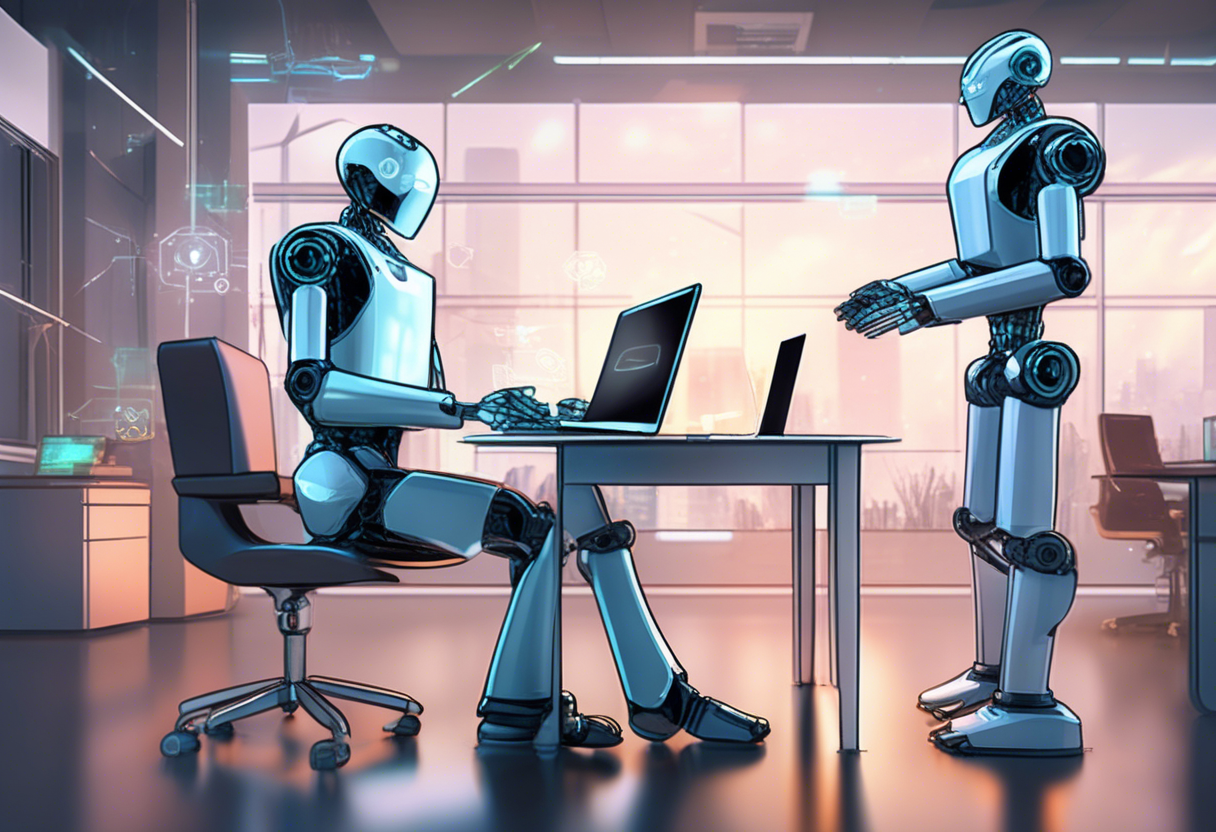
In a time when AI is changing industries fast, soft skills are becoming more valuable. Did you know that 92% of talent pros think soft skills are as important, or even more so, than hard skills? As AI takes over routine tasks, things like empathy, communication, and adaptability set people apart at work. Here, we'll look at the key role soft skills play in an AI-driven world, the skills you need to succeed, and practical ways to develop them. Whether you're experienced or just starting out, getting good at these skills can help you thrive in the job market. Let's see how soft skills are not just hanging on, but thriving in the age of AI!
Summary: This article explores the importance of soft skills in the context of AI advancements, highlighting key skills necessary for success and strategies for development. It also examines the future implications of these skills in AI-impacted roles.
Understanding the Role of Soft Skills in the Age of AI
AI's Strengths and Limitations in the Context of Soft Skills
AI excels in handling technical, analytical, and repetitive tasks. It shines in areas like data processing, automation, and streamlining operations. With its computational power, AI can efficiently analyze data and predict trends.
However, AI has its limitations. It lacks creativity, empathy, and human judgment. AI is not equipped to address ethical dilemmas or adapt to unexpected situations unless specifically programmed for such tasks. While it can enhance processes and manage data, it cannot replace human leadership or the intricacies of relationships and creative problem-solving.
Furthermore, AI presents its own set of ethical challenges, including bias and data protection issues, which necessitate human oversight. As AI technology continues to advance, it is vital for individuals to remain adaptable, curious, and prepared to navigate uncertainty.
The Importance of Human-Centric Soft Skills in AI Integration
Human-centric soft skills—such as emotional intelligence, communication, adaptability, creativity, and teamwork—are essential complements to AI's technical capabilities.
- Emotional Intelligence: This skill aids leaders in building trust, resolving conflicts, and motivating teams—tasks beyond AI's reach.
- Communication: Vital for ensuring that complex AI results are clearly explained to both tech-savvy individuals and those less familiar with technology.
- Empathy: Crucial for designing AI systems that respect human values and promote inclusivity.
- Teamwork: Essential for diverse teams working on AI projects, as it brings together various forms of expertise.
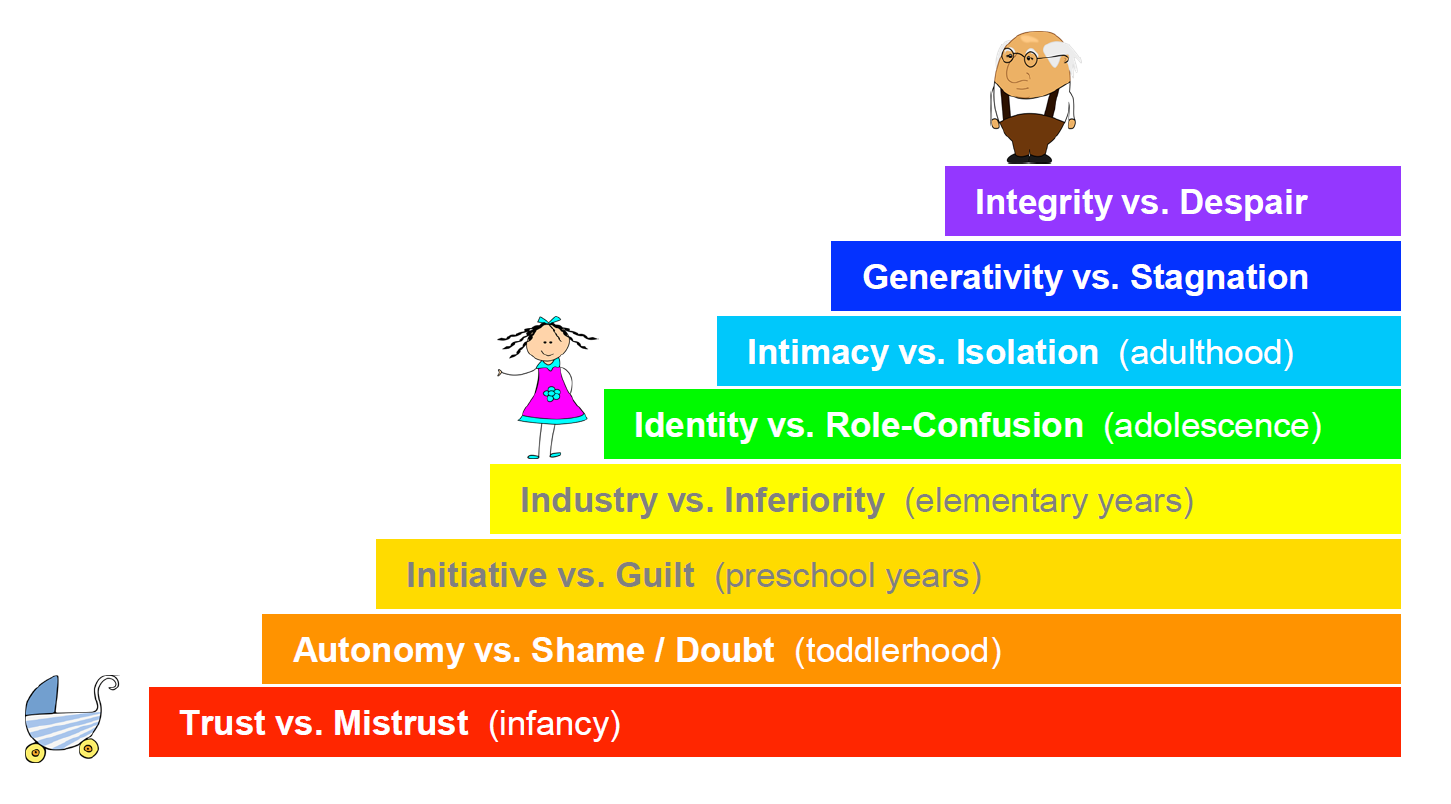
As AI continues to evolve, the demand for these human-centric skills will only increase, ensuring that AI technology enhances human potential rather than replaces it.
In practical applications, soft skills dictate how AI is utilized in sectors like customer service, healthcare, and team collaboration. These skills foster trust through empathy and enable the critical evaluation of AI outputs for ethical decision-making. Companies are encouraged to prioritize hiring for soft skills and to invest in ongoing training to build strong, adaptable teams.
Key Soft Skills for Success in an AI-Driven World
Emotional Intelligence: A Key Soft Skill in AI Integration
In a world where AI is everywhere, emotional intelligence (EI) stands out as a must-have skill. It's about understanding your own emotions and those of others, which aids in collaboration and inclusivity. While AI excels at number crunching and delivering results, it lacks the human connection essential for relationship-building. EI bridges this gap by fostering trust, resolving conflicts, and motivating teams.
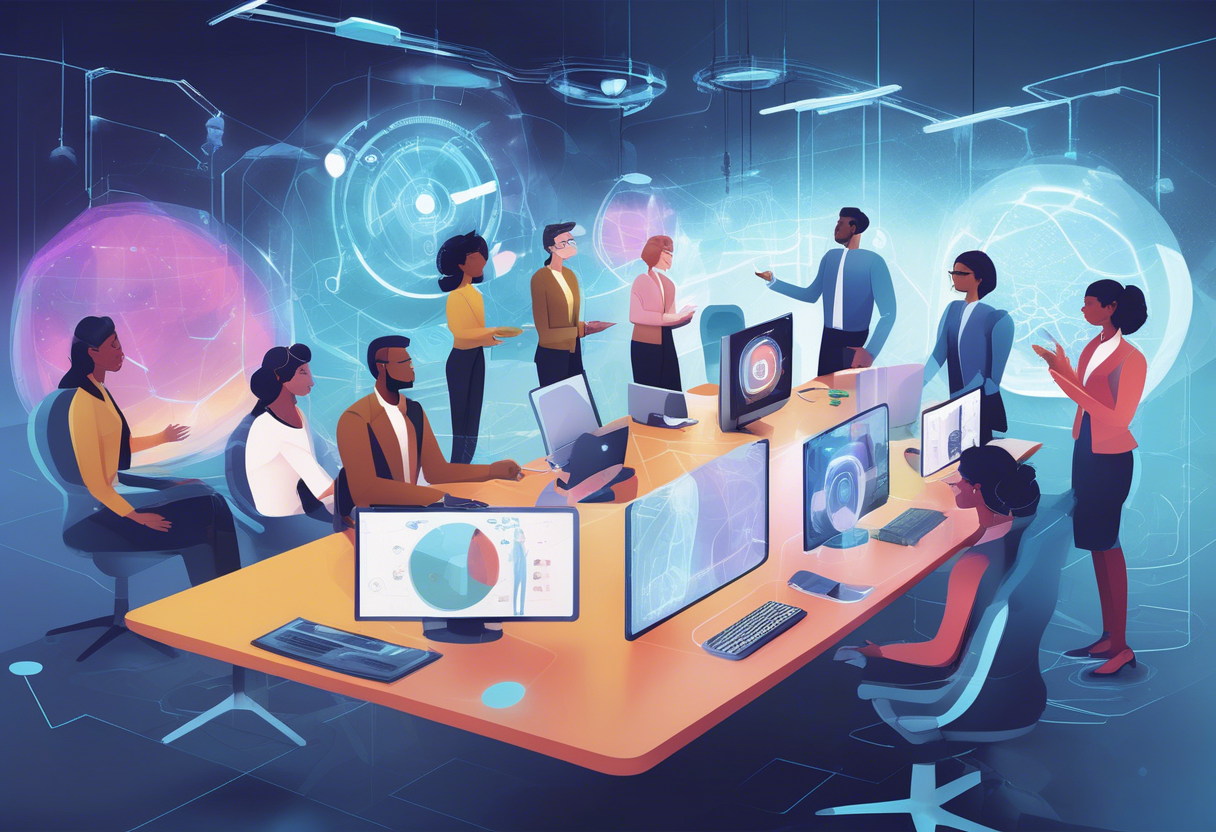
Leaders, in particular, benefit from EI to maintain team motivation and harmony. Consider a manager who uses EI to mediate a conflict between team members learning new AI tools, thus creating a more peaceful and productive workplace. A LinkedIn survey in 2023 highlighted that 92% of talent professionals regard soft skills, such as EI, as equally important, if not more so, than technical skills.
Critical Thinking in AI-Driven Problem-Solving
While AI excels at processing vast amounts of data and identifying patterns, it requires human intervention to interpret these patterns in real-world contexts. This is where critical thinking and problem-solving come into play. These skills enable individuals to evaluate AI outputs, identify biases, and propose adjustments, ensuring a balanced integration of AI analysis and human decision-making.

AI provides insights and suggestions, but humans must question, analyze from multiple perspectives, and make informed decisions. This is crucial in sectors like healthcare, where doctors leverage AI for diagnosis but rely on their judgment for confirmation and treatment. As noted by SIG, critical thinking is one of six key human skills for thriving alongside AI.
Communication and Collaboration in AI Workplaces
Effective communication and collaboration are vital in an AI-driven world. As AI becomes more prevalent in workplaces, the ability to convey ideas clearly and work collaboratively with both humans and machines is essential. Communication skills transform AI insights into understandable information through storytelling and examples, fostering trust with stakeholders.
Tools like Slack and Microsoft Teams facilitate team communication and collaboration, with AI bots assisting in scheduling and information sharing. However, the human element remains crucial. Teams must explain complex concepts, define roles, and resolve conflicts—tasks that require understanding and empathy, which AI cannot replicate. Collaboration combines human creativity with AI capabilities, enabling teams to solve problems innovatively and tailor AI tools to their needs. This teamwork ensures AI systems align with organizational goals, as emphasized by the British Council.
Adaptability: Essential Soft Skill in AI Evolution
In a rapidly evolving technological landscape, adaptability and flexibility are essential. AI technology evolves swiftly, necessitating a willingness to learn and adjust. Workers must embrace new technologies, engage in continuous learning, and utilize feedback to thrive in an AI-driven workplace. Platforms like Coursera and Udacity are excellent resources for updating skills and staying abreast of AI trends.
Adaptability is one of six critical human skills for thriving in the AI era, fostering resilience and innovation. This flexibility is particularly important in fields like finance and marketing, where AI insights can rapidly alter strategies, requiring teams to adjust campaigns and operations quickly. The British Council highlights the significance of adaptability and learning agility in keeping pace with fast-changing AI technology and job roles.
Creativity: Driving Innovation in the AI Age
Creativity and innovation are uniquely human traits that AI cannot replicate. While AI can assist in brainstorming by analyzing trends, the human element is essential for genuine innovation. Creativity is one of the six essential human skills needed to thrive with AI. Collaborative efforts spark new ideas by merging human strengths with AI capabilities, leading to innovative solutions that can transform industries and enhance lives.
Creative software, like Adobe's tools with AI features, aids designers and artists in exploring creativity. However, it is human imagination that drives original content and groundbreaking products. In the tech industry, companies like Google promote innovation through initiatives like "20% time," allowing employees to dedicate part of their week to creative projects. As Horton International points out, creativity is a unique human skill vital for developing solutions that AI cannot conceive.
In summary, developing key soft skills such as emotional intelligence, critical thinking, communication, adaptability, and creativity is crucial for thriving in an AI-driven world. These skills complement AI's technical strengths, enabling professionals to effectively navigate the complex AI-enabled workplace.
Developing Soft Skills for AI-Impacted Roles
Soft Skills Development Roadmap for AI Integration
With AI transforming the workplace, having a structured plan to develop soft skills is essential. Begin with foundational skills like critical thinking. This enables individuals to evaluate AI outputs, identify gaps, and propose improvements. Equally important are emotional intelligence and empathy. These skills enhance teamwork and foster a harmonious interaction with technology, creating more inclusive work environments.
Effective communication is crucial. It facilitates the explanation of AI concepts to non-technical audiences, reduces misunderstandings, and strengthens relationships with both team members and customers.
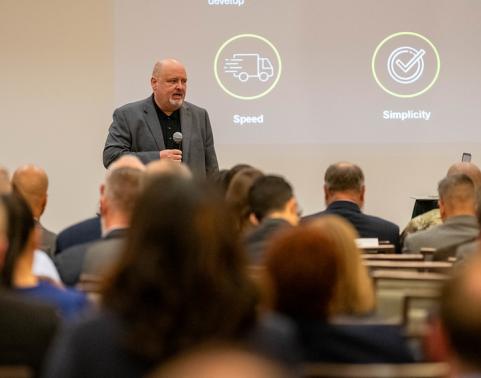
Teamwork is the fusion of human creativity and AI intelligence, driving innovation and problem-solving. Moreover, being adaptable and willing to learn is critical in AI-centric roles, ensuring readiness for new technologies and continuous learning.
Strong communication involves assessing AI-generated content, tailoring messages for diverse audiences, and maintaining trust. As AI automates routine tasks, skills such as communication, emotional intelligence, and adaptability will become increasingly vital. These skills emphasize our capabilities in social interaction and strategic thinking. A comprehensive plan might include workshops on conveying AI insights and ongoing learning through microlearning and coaching.
AI-Powered Training and Development Programs for Soft Skills
AI-powered training tools provide personalized and interactive soft skills development. These tools adapt to each learner, making the experience engaging and effective. Combining formal training with on-the-job learning, microlearning, coaching, and mentoring fosters a culture of continuous development. Programs should focus on AI collaboration and communication, enabling individuals to select, organize, and evaluate AI content for clarity and relevance.
Effective training addresses skills such as empathy and conflict resolution through practical, customized approaches. Organizations benefit by creating roles and cultures that emphasize human-AI collaboration, with leadership supporting ongoing development.

Training may incorporate AI simulations to practice empathy and conflict resolution, coupled with mentoring to enhance adaptability and communication in real-world situations.
Future Implications of Soft Skills Development in AI
Leadership Skills for an AI-Driven Workplace
In our AI-driven work world, leaders need to blend an understanding of AI technology with strong people skills such as empathy, strategic vision, and change management. These skills are crucial for inspiring and supporting teams through the shifts AI brings.
Emotional intelligence is particularly important, as it helps leaders build trust, resolve conflicts, and keep teams motivated during these changes. Additionally, leaders must focus on ethics, good judgment, and integrity to tackle AI's ethical challenges, like bias and data protection.

Leaders who leverage their emotional intelligence can effectively guide their teams through AI adoption. This involves ensuring clear communication and addressing ethical issues while using AI insights for strategic decisions. You can find more on why these skills matter here.
Balancing Technical Expertise and Soft Skills Development
As AI takes over technical and repetitive tasks, soft skills like creativity, adaptability, and communication become even more valuable. These skills are essential for complementing what AI can do and for transforming AI-generated data into smart, human-focused decisions.
Being adaptable, curious, and resilient is important for learning on the fly and handling the rapid changes AI introduces to the workplace. Emotional intelligence and people skills are a must for maintaining effective teamwork between humans and AI. Investing in developing these soft skills is vital for success and staying ahead as AI continues to evolve the way we work. Horton International highlights the importance of these skills for leadership and teamwork.
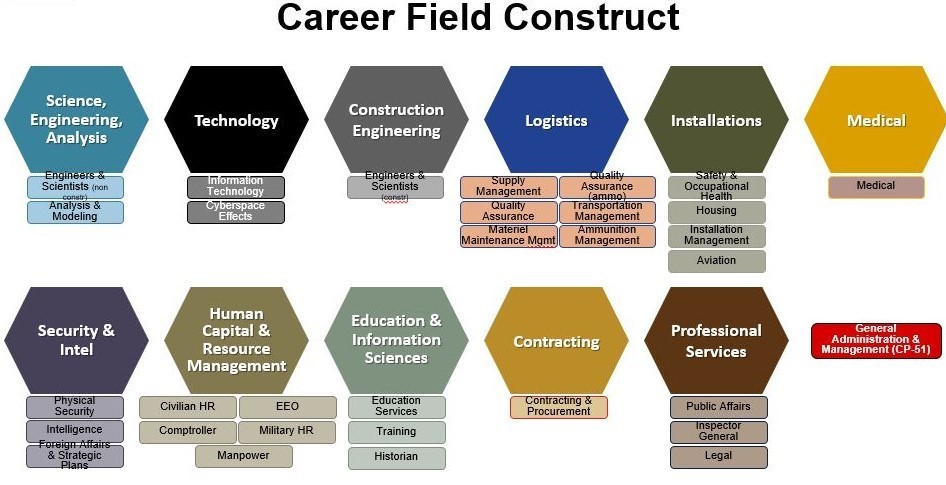
Professionals who can blend technical expertise with soft skills will bridge the gap between what AI can do and what people need, driving both technological progress and human-focused innovation.
FAQ Section
Enhancing Human-AI Collaboration with Soft Skills
Soft skills play a crucial role in improving how humans and AI work together. They help create an environment where communication, empathy, and adaptability thrive. These skills form the backbone of teamwork, building better relationships among coworkers, managers, and customers. As AI takes over more routine tasks, the need for emotional intelligence and tech know-how grows.
Being adept at communicating, understanding emotions, and adapting is key to overcoming social challenges and working effectively with others, even when AI is involved. For example, someone with strong emotional intelligence can better understand AI insights and explain them clearly to the team, enhancing human-AI collaboration.
Essential Soft Skills for Leaders in AI-Driven Workplaces

In an AI-powered workplace, leaders need a unique set of soft skills to guide their teams. Communication is essential for leaders to share ideas clearly, listen effectively, and achieve goals efficiently. Emotional intelligence helps leaders manage their emotions, understand others, and maintain good working relationships, which are vital for teamwork and leadership.
Adaptability is crucial for leaders to handle rapid changes and embrace new AI tools and workflows. Problem-solving skills are necessary for tackling challenges in a dynamic AI-driven business world. Additionally, being resilient and open to feedback is important for ongoing growth and navigating the ever-changing workplace shaped by AI.
A leader who communicates well, exhibits emotional intelligence, and adapts swiftly to AI changes can successfully guide their team through digital transitions.
Effective Training Strategies for Soft Skills Development
To effectively train employees in soft skills, companies should focus on continuous practice and feedback. Receiving input from colleagues, supervisors, or mentors is one of the best ways to improve these skills. Training programs should emphasize skills such as communication, teamwork, problem-solving, adaptability, resilience, and receiving feedback to build a stronger workforce.
Companies can integrate soft skills training into Learning & Development (L&D) initiatives, concentrating on key skills like communication, emotional intelligence, and adaptability. Offering practical experiences, such as role-playing, storytelling, and real-world scenarios, helps employees practice and internalize these skills. Encouraging a culture of open feedback and continuous learning supports employees in continuously improving their soft skills.
For instance, a company might establish a training program with workshops on emotional intelligence, communication exercises, and peer feedback sessions to enhance employees' soft skills.
By investing in soft skills development, organizations can ensure their workforce is prepared to work effectively with AI technologies and drive innovation. A LinkedIn study found that 92% of professionals believe soft skills are as important or more important than technical skills, underscoring their crucial role in a company's success.